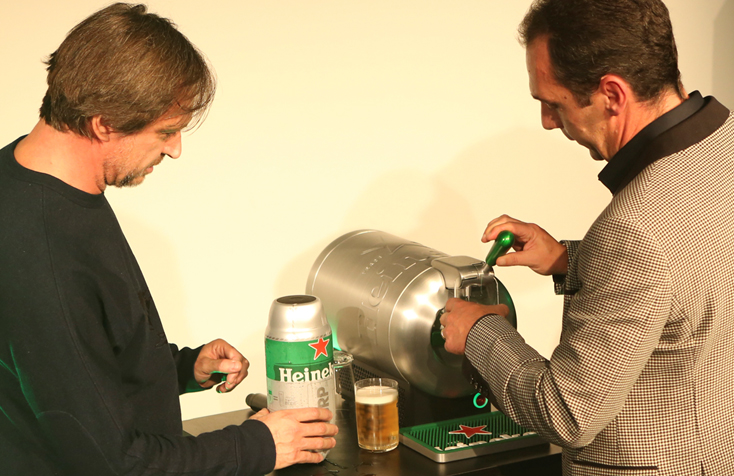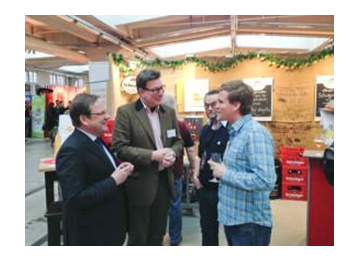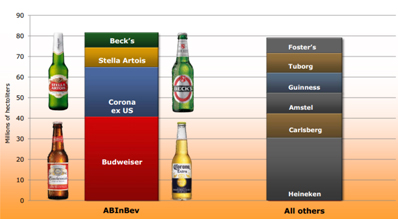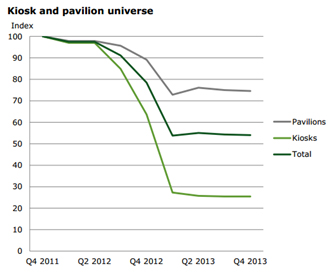As the anti-sugar campaign gathers pace, the targets – food and beverage manufacturers – decided it was high time to tell the government what’s what, and in a language politicians understand: the language of money. In March 2014 members of the Food & Drink Federation and Coca-Cola Enterprises (CCE) met in Westminster to point out the wider impact The Coca-Cola Company has on the UK economy. As UK media reported, CCE had enlisted the help of independent researchers, who – no surprise really – found out that for each job provided by Coca-Cola, a further eight jobs are created across Great Britain both upstream and downstream – a total of 34,500.
The co-owner and Managing Director of Munich’s Augustiner Brewery is dead. Dr Jannik Inselkammer, 45, was buried by an avalanche in Canada on 24 March 2014. He was waiting for his helicopter to fly him out after a heli-ski expedition to the Selkirk mountain range in British Columbia.
The secrecy surrounding the EU-US trade talks – the Transatlantic Trade and Investment Partnership (TTIP) - has already stoked widespread fears among European environmental and consumer groups that the pact will lower standards for everything from apples to automobiles. Opposition to TTIP is rife. But the angst over the potential impact of an EU trade agreement is also coming from mainstream European groups who don’t have a knee-jerk approach to trade agreements.
The beer division of German food and beverage company Oetker Group faces a fine of EUR 190 million (USD 263.3 million) for its involvement in fixing beer prices, the German news magazine Focus reported on 9 March 2014.
Who would have thought that MPs could be in a state of advanced inebriation when voting in parliament? Apparently, some must have proven very tired and emotional indeed or the speaker of the lower house of the Czech parliament would not have banned the sale of alcohol at restaurants and cafes on the premises of the country’s legislature during plenary meetings in early March 2014.
Has Carlsberg become a risky investment? Shares in Carlsberg dropped 4.3 percent on 3 March 2014 after investors deserted the Danish brewer due to its exposure to the Russian market as the Ukraine crisis escalated, media reported.
They did not wait for the Brewers of Europe ’s generic beer campaign to get off the ground. Instead, they decided to go alone with their own to boost domestic beer consumption. And not too soon. While beer exports from Belgium are up, consumers back home are drinking less and less local beer.
More than 100 exhibitors and over 7,800 visitors (+45 percent over 2013) attended the Munich beer festival Braukunst Live! which was held at the weekend of 21 to 23 February 2014. Beer lovers, who on average had splashed out EUR 50 for a ticket and beer samples, were enthusiastic about this year ’s wealth of innovations, special brews, lectures and master classes offered at the fair.
These are interesting figures: Sales of Budweiser in the U.S. declined 29 percent between 2007 and 2012, says Beer Marketers’ Insights. Budweiser Select was down 61 percent over the same period, Michelob Light a staggering 70 percent. AB-InBev cannot be too pleased. However, rival MillerCoors was not spared either: sales of Miller Genuine Draft dropped 56 percent and Milwaukee’s Best Light 40 percent.
Is flat the new high? Reporting full year 2013 results, brewer Carlsberg said that net sales were flat at DKK 66.55 billion (USD 12.3 billion), while operating profits also came in flat at DKK 9.85 billion (USD 1.8 billion). However, Carlsberg on 19 February 2014 posted a drop in full-year profits as volumes and sales declines in Eastern Europe outpaced growth in Asia.





